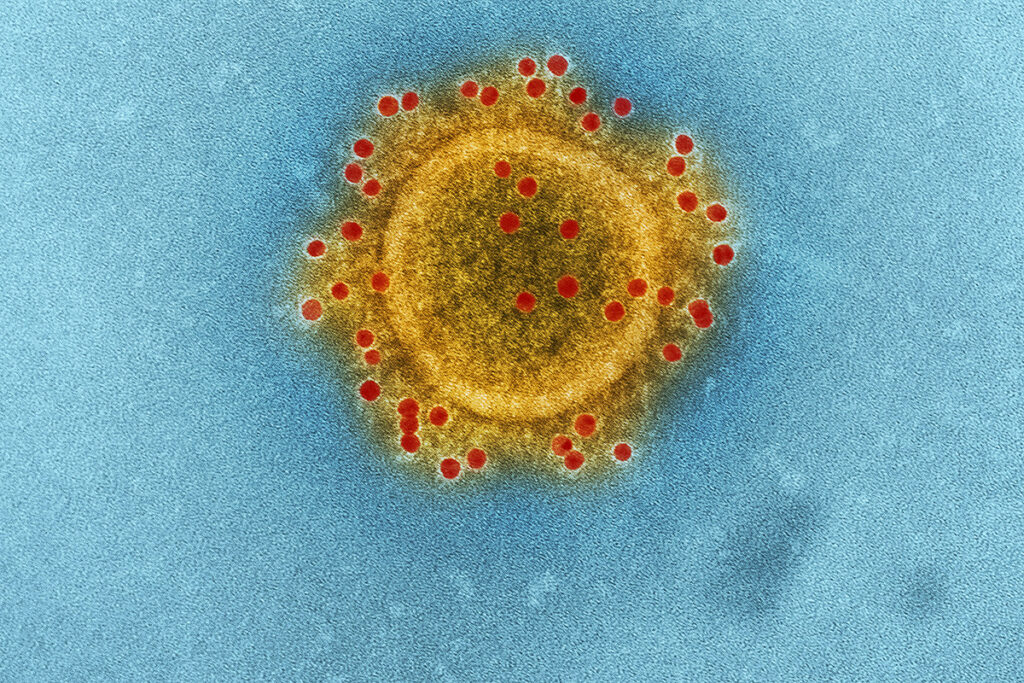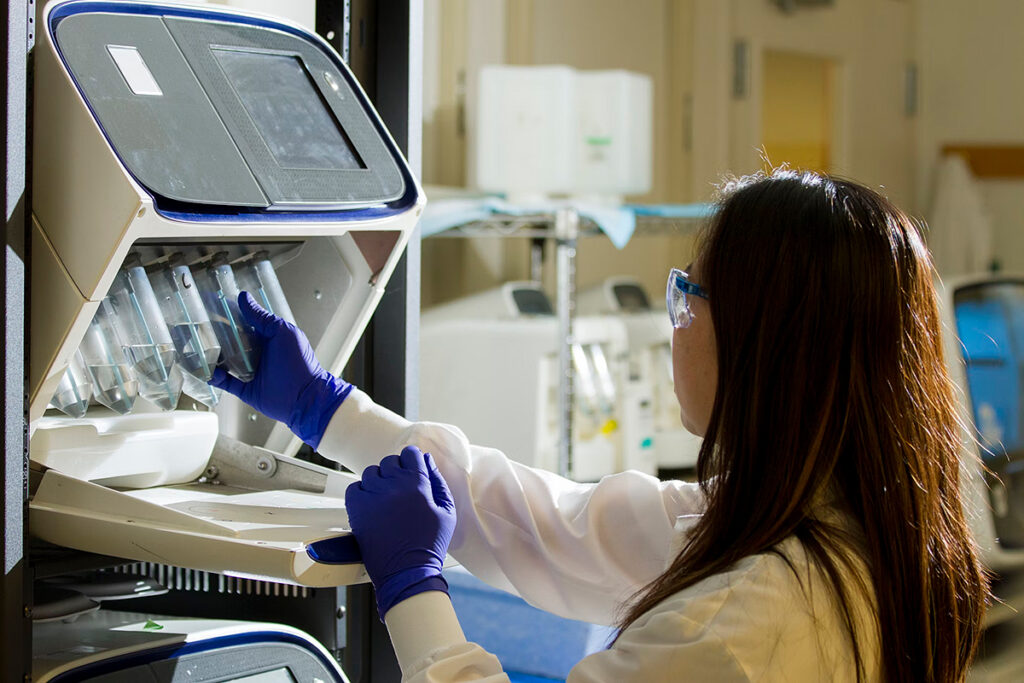Children often suffer from viral pneumonia, transmitted by droplets and contact with the infected. Viral pneumonia can lead to complications, disrupting the heart and brain and threatening the growth and development of children.
Respiratory syncytial viral pneumonia is common in infants and children under 2 years of age. Common symptoms of pneumonia are wheezing and shortness of breath. Symptomatic and supportive treatment with antiviral drugs and antibiotics is used as therapy.
One of the antiviral drugs is recombinant human interferon-α-2b in the form of aerosol inhalations. Interferon-α-2b (IFN-α-2b) directly affects the respiratory mucosa, effectively and safely suppressing the virus.
Two mechanisms explain the antiviral effect of interferon-α-2b:
- IFN-α-2b binds to type I interferon receptors on the cell surface and activates about 300 interferon-stimulated genes (ISGs) to synthesize antiviral proteins.
- IFN-α-2b enhances the activity of immune cells.
As a symptomatic treatment for viral pneumonia, traditional Chinese medicine uses Reduning injections. Reduning is used to treat coughs, upper respiratory tract infections and acute bronchitis.
Reduning consists of wormwood, honeysuckle and gardenia:
- Honeysuckle has an antipyretic effect and removes toxins, has anti-inflammatory and antiviral properties, restores the phagocytic ability of leukocytes, promotes the transformation of lymphocytes, and regulates immune function.
- Gardenia removes toxins, enhances the honeysuckle’s detoxifying effect, and has anti-inflammatory, antiviral and antipyretic effects.
- Wormwood Annual relieves symptoms, has an anti-inflammatory, antipyretic and analgesic effect, stimulates the proliferation of spleen T-lymphocytes and suppresses the influenza virus.
Chinese scientists investigated the effectiveness of Reduning injection in combination with recombinant human interferon-alpha-2b for treating children with viral pneumonia.
Participants of the study were 200 children aged 2-11 years. All children had a fever greater than 39.6°C, cough, shortness of breath, wheezing in the lungs, signs of pneumonia on chest x-rays, and antibodies to the pneumonia virus. All children were admitted to the clinic within 48 hours of onset.
The children received symptomatic and supportive treatment – intravenous injections of Reduning at a dosage of 10 ml once a day. The study participants were divided into groups:
- 100 received recombinant human interferon-alpha-2b as an aerosol inhalation at a dosage of 3 million IU 2 times a day with an interval of >6 hours.
- 100 – Reduning only.
The course of treatment in both groups is 5-7 days.
Research results:
- In the interferon group, body temperature and respiratory rate returned to normal much faster, and pulmonary rales and cough decreased.
- Treatment efficacy was higher in the interferon group: 93% versus 74% in the control group.
- Before treatment, there was no significant difference between groups in levels of inflammatory mediators. After treatment, the levels of IL-1, IL-6, TNF-α and CRP in both groups decreased. A more significant decrease was observed in the interferon group.
- Adverse reactions: in the interferon group, there were 3 cases of nausea and vomiting, 5 cases of dizziness and not one case of rash; in the control group, there were 4 cases of nausea and vomiting, 3 cases of dizziness and 1 case of inflammation.
Conclusion
Recombinant human interferon-α-2b combined with Reduning injection may speed up the recovery of children with respiratory syncytial viral pneumonia by relieving symptoms and reducing inflammatory reactions.
Useful article, necessary information? Share it!
Someone will also find it useful and necessary:



